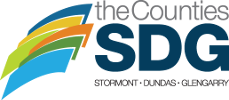
THE COUNTIES, Ontario – The United Counties of Stormont, Dundas and Glengarry is calling for significant changes to the education system in Ontario, following the receipt of a consultant’s report that spotlights the shortcomings of the system for students in our region and throughout rural Ontario.
The report, entitled “Improving Rural Education in Stormont, Dundas and Glengarry”, was prepared by Horizon Educational Consultants of Ottawa. The study was commissioned by the County earlier in 2021, and fulfills one of the strategic priorities of the County – Rural Schools – Educating Children in their Own Communities.
READ THE REPORT HERE
RURAL EDUCATION SYMPOSIUM - FEB. 3, 2022
COUNTIES SET EDUCATION PRIORITIES - MARCH 21, 2022
At its meeting Nov. 15, 2021, Council endorsed the report, an expansive review of trends and challenges in public education in the SDG region which contains a series of 10 key recommendations for government to improve educational opportunities for children throughout rural Ontario.
“The current education model has created an uneven playing field for our students,” said Warden Allan Armstrong. "The province must start addressing these concerns to ensure rural students receive the same opportunities as their urban counterparts."
In addition to the urban/rural divide, the report also highlights the inequities among the area’s four school boards, particularly in the area of funding.
Some of the key recommendations include:
- Consolidate the existing four publicly funded school boards into a publicly funded system for each official language, English and French.
- Increase daycare spaces (full time or before/after school) in our region and homogenize their availability regardless of a student’s spoken language and/or religion.
- Ensure that the use of schools as community assets is maximized.
- Review how/when/where French immersion programming is offered.
- Enhance the availability and scope of Secondary School Specialized programming.
- Review student transportation policies to limit ride times for students, and better align transportation alternatives with provincial health strategies aimed at reducing childhood obesity.
- Eliminate the inequities rural students face in access to broadband connectivity and at-home/in-school IT resources.
